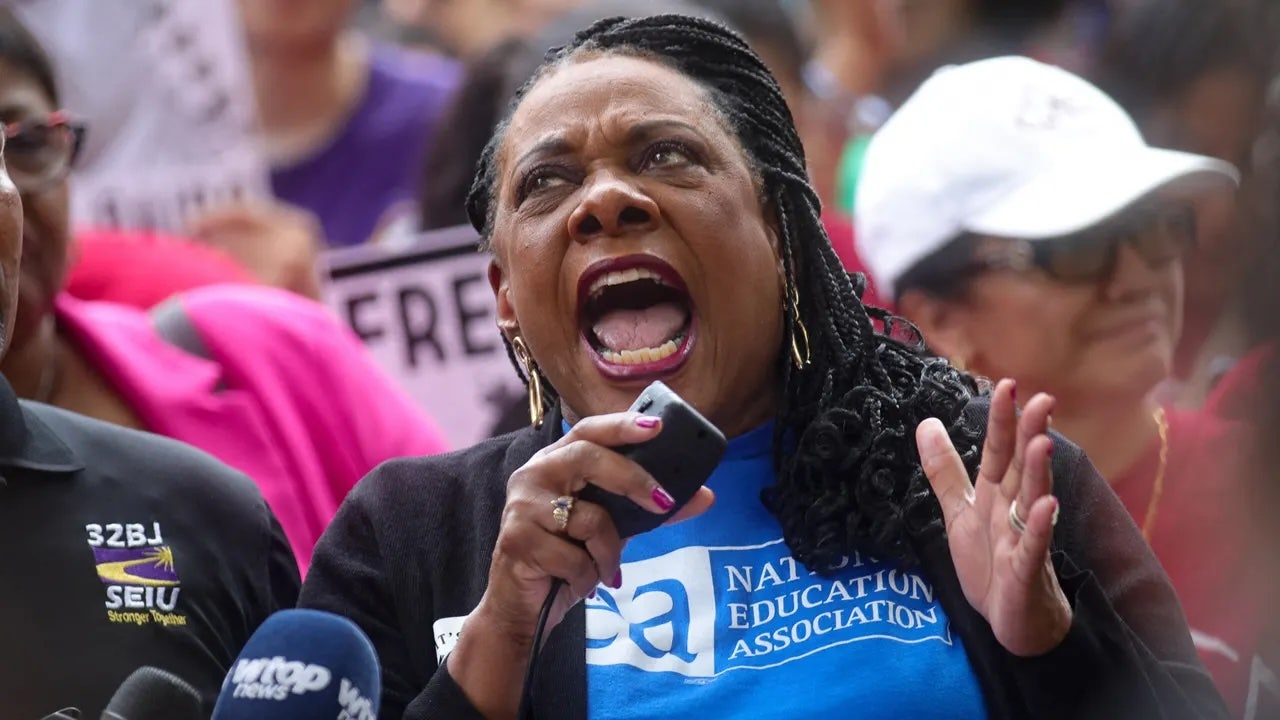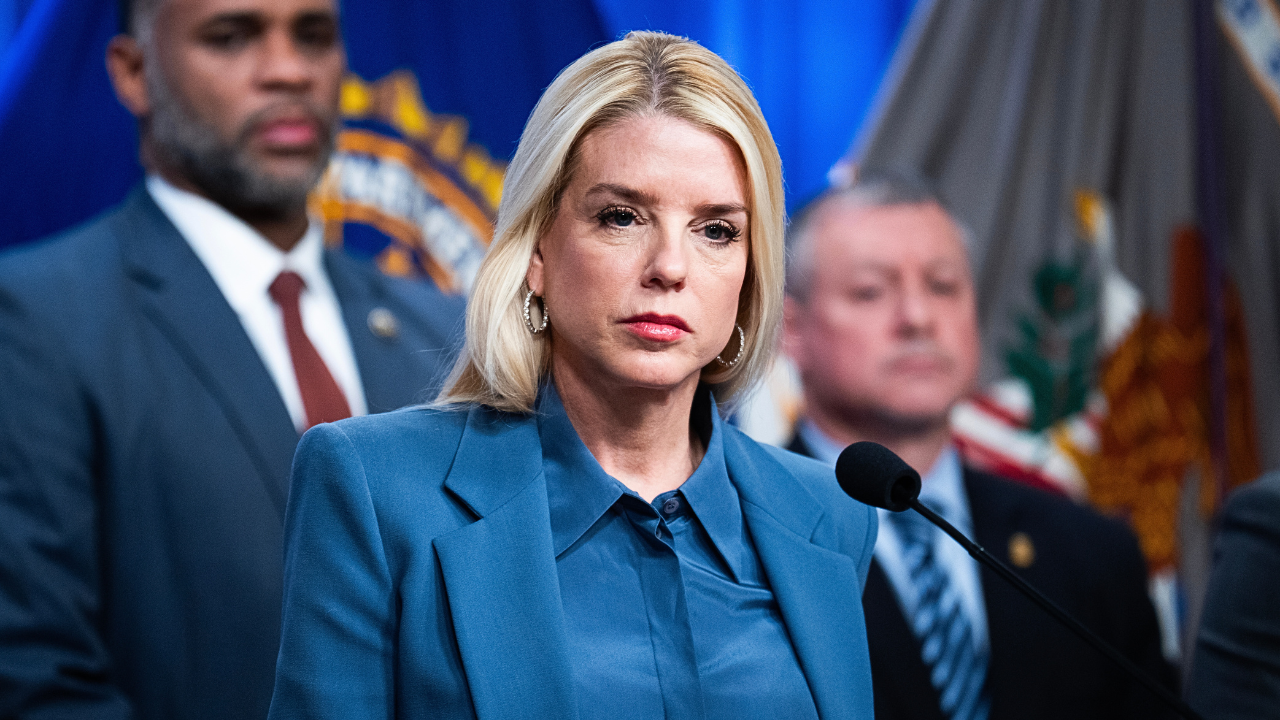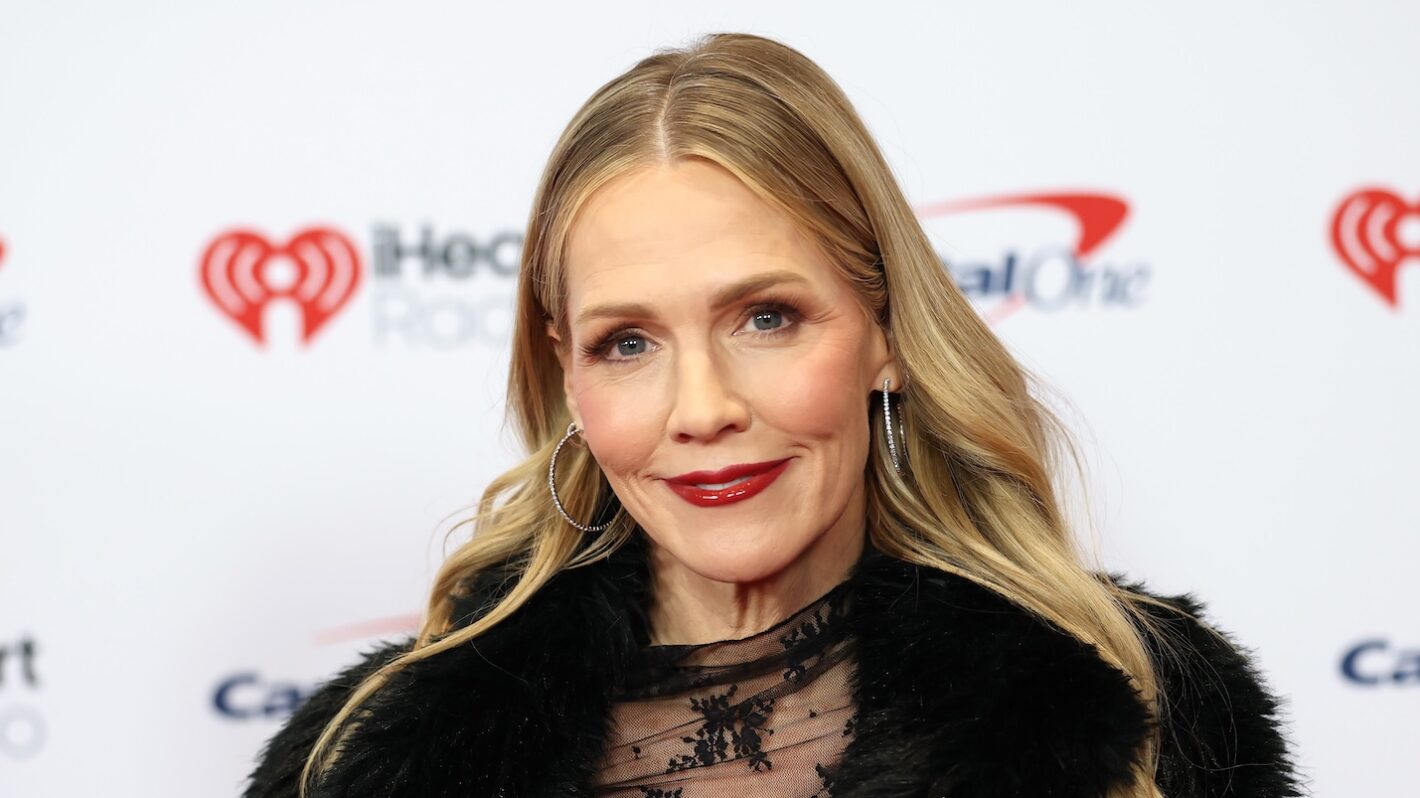
Cassandra Welchlin is the executive director of the Mississippi Black Women’s Roundtable. She’s an award-winning community organizer, social justice activist and licensed social worker who has spent her life championing working-class women’s rights to equal pay, affordable childcare and health care, among others, in her home state of Mississippi, the South and nationwide. In her own words, Welchlin explains how her own upbringing helped shape her beliefs and, more importantly why she believes that Black mothers need to be uplifted this Mother’s Day.
Like many Black folks, I grew up poor and didn’t know it.
I was raised in Jackson, Mississippi, primarily by women, which included my mom, my grandma and my aunt. The women in my life often struggled to put food on the table, keep the lights on, and care for me as they worked low-paying jobs, mostly with no health benefits and no days off. My mom and aunt were maids in the 1970s, making just $2.13 an hour. When I was preschool age, they took me to work with them and hid me in utility closets while they cleaned the toilets and emptied the trash. I played patty-cake and ate lunch in those closets. Back then, I thought that’s where all the kids went. I didn’t understand until years later that this was my childcare story. My family didn’t make enough money to send me to childcare or preschool, let alone trips to Disney ― the pinnacle of the childhood experience, usually reserved for the wealthy and their kids ― in nearby Florida.
As I stack the harsh realities of the mothers in my life back then against the most vulnerable mothers among us today, particularly the single ones, I am alarmed and devastated. You ought to be, too.
The statistics paint a clear, painful picture: This country is failing millions of Black moms economically, politically and medically in ways that keep generations of Black families just like mine stuck.
And with literally deadly outcomes: Black mothers in the U.S. face a disproportionate burden of maternal mortality and morbidity compared to white mothers. According to the Centers for Disease Control and Prevention (CDC), Black mothers are three to four times more likely to die from pregnancy-related complications than white mothers. This significant public health issue highlights the systemic racism and inequalities in health care that Black women face in the U.S. So, what’s behind it?
- A lack of access to health care: Black moms are more than likely to live in areas with limited access to health care facilities and providers. This makes it harder for them to get the prenatal care needed for a healthy pregnancy and access emergency care when complications arise.
- Implicit bias in health care: Black mothers are often subjected to racial discrimination and implicit bias in health care settings, leading to misdiagnosis, delayed treatment and inadequate care.
- Economic disparities: Black mothers are likelier to live in poverty and have limited access to resources like nutritious food, safe housing and transportation. This, of course, can negatively impact their and their children’s health.
- Lack of social support: Black mothers often face social isolation and lack of support during pregnancy and after childbirth, often leading to increased stress, depression, and anxiety, which can negatively impact their health and babies.
And those babies are dying too: Black infants are the most likely to die in all ethnic groups before or within their first year of life.
And if they live (for Black children specifically, gun violence has been the leading cause of death since 2006), how are we feeding them? As you read this, House Speaker Kevin McCarthy (R-Calif.) and other lawmakers are pushing for tighter food stamp restrictions that would jeopardize already hungry Black families to include seniors amid debt ceiling concerns.
All these truths reinforce my belief that not only do we owe Black moms and their families an astronomically better existence this year and all years, but that, as citizens, we must do our part to hold our government accountable in passing legislation that will make it so.
Here are (at least) six ways the U.S. is obligated to better show up for Black moms and their families this Mother’s Day.
Nationwide Paid Family And Medical Leave
Most Black mothers — more than 80% — are primary breadwinners. Yet, research through the Center for American Progress finds that six out of 10 Black moms either don’t take their maternity leave or do so without pay to care for new babies, sick family members or themselves when they fall ill, costing them $3.9 billion in lost wages each year. The U.S. can change this by finally passing legislation such as the long-proposed Family and Medical Insurance Leave (FAMILY) Act, which would provide workers with up to 12 weeks of partial income replacement for qualifying events such as the birth or adoption of a child, serious illness or injury of a family member or a worker’s own serious health condition. Employee and employer contributions to a national trust fund would fund the program.
Pass Black Maternal Health-Focused Legislation
Policies like the Black Maternal Health Momnibus Act of 2021, a package of 12 bills that address maternal health disparities through a comprehensive set of initiatives, aim to, among others, make critical investments in social determinants of health that influence maternal health outcomes, like housing, transportation, and nutrition, and provide funding to community-based organizations such as mine, the Mississippi Black Women’s Roundtable, that are working to improve maternal health outcomes and promote equity.
Vote Down Legislation Not Feeding Black Families
To cut the federal debt, House Speaker Kevin McCarthy (R-Calif.) and other legislators are looking to do what they always have ― sacrifice the welfare of Black and other minority families ― by proposing $4.5 trillion in cuts to the federal budget via The Limit, Save, Grow Act of 2023, taking aim at, among others, the Supplemental Nutrition Assistance Program (SNAP), a federal assistance program in the U.S. that provides nutrition assistance to low-income people and their families. If this or similar legislation passes, hundreds of thousands of low-income Americans, including 19.5 million kids, will face higher barriers to food assistance, including seniors ― barriers that will cause them to go hungry.
Pass A New Child Tax Credit Law
The 2021 expansion of the federal Child Tax Credit led to a historic reduction in poverty in the U.S., particularly for children. Adults with young kids between the ages of 0 and 5 received refundable credits of $3,600 per child, and those with kids between 6 and 17 received $3,000. These benefits gave an unprecedented number of low-income families ― Black, American Indian and Alaska Native families ― a crucial financial break so moms could better feed, clothe and house their kids, with the Census’ Supplemental Poverty Measure showing that these poverty rates fell most dramatically for Black children ― by a whopping 17 percentage points. More of this, please, as the current legislation expires after the 2025 tax year.
Aimed at restoring and strengthening key provisions of the landmark Voting Rights Act of 1965 that sought to eliminate discriminatory voting practices used to disenfranchise Black voters. Passing it would help Black mothers by protecting their voting rights in states where they are always under attack like mine and addressing systemic racism that has existed since Blacks secured their right to vote, promoting equity and amplifying their voices in the political process.
Finally, Close The Wage Gap For Black Women
Closing the wage gap at the federal level would make a world of difference to Black moms and their families. It’s not only incredibly important but also the fair and right thing to do. Black women, on average, earn only about 63 cents for every dollar earned by white men. This gap is even wider for Black moms, especially those in the South (in Mississippi, it’s a measly 56 cents on the dollar ― locally, we are fighting to amend Mississippi’s Equal Pay Act which continues to rob Black women of their livelihoods). A financial boost through the federal Paycheck Fairness Act would be seismic and life-changing for Black families, promoting economic stability, improved access to health care, a reduction in stress and anxiety leading to better mental health, as well as improved educational opportunities for Black moms and their kids ― the ultimate Mother’s Day gift.
























































